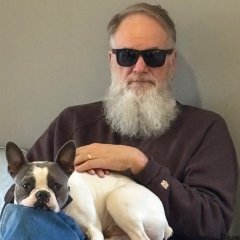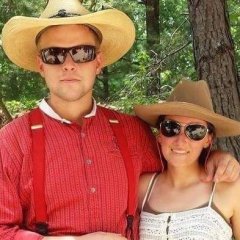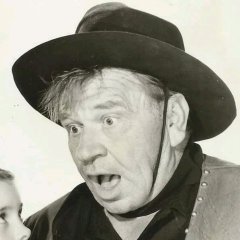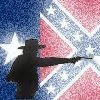-
Posts
7,676 -
Joined
-
Last visited
-
Days Won
2
Linn Keller, SASS 27332, BOLD 103 last won the day on October 27 2016
Linn Keller, SASS 27332, BOLD 103 had the most liked content!
About Linn Keller, SASS 27332, BOLD 103
- Birthday 03/31/1956
Previous Fields
-
SASS #
27332
-
SASS Affiliated Club
Firelands Peacemakers
Contact Methods
-
ICQ
0
-
Yahoo
linnkeller
Profile Information
-
Gender
Male
-
Location
Lorain County, Ohio
-
Interests
History, calligraphy, any game that burns powder
BOLD 103, Center Township Combat Pistol League
Skywarn, ham radio, and no idea what I want to do when I grow up!
Recent Profile Visitors
Linn Keller, SASS 27332, BOLD 103's Achievements

SASS Wire Vet (1/1)
12.2k
Reputation
-
SHORT STORIES!
Linn Keller, SASS 27332, BOLD 103 replied to Linn Keller, SASS 27332, BOLD 103's topic in SASS Wire Saloon
An Aside The Lady Esther, in my imagination, is an early Baldwin diamond-stacker, but in the stories I've spun, I wrote of her being fired with coal: this would argue for her having a coal stack rather than the traditional diamond stack. I am incurably romantic when it comes to things like steam engines, big furry hound dogs, truly huge horses and Appaloosas: Apple-horse was very real, and I grieved in private when Granddad sold him, but that's beside the point. Steam locomotives, whether rail mounted or traction engines, are something I've long loved. A very few times I've heard a steam whistle in the hill country back home, sounding like ghosts singing in the faraway wind. Gracie seemed to like it. This that I'm trying to link, sounds kind of like The Lady Esther sounds in my imagination. So much for author's comments. Back to the story line. Steam Whistle on a High Trestle -
The Aussie Humour Thread
Linn Keller, SASS 27332, BOLD 103 replied to Buckshot Bear's topic in SASS Wire Saloon
Scientifically correct. Recent news articles report most store bought sunscreen is ineffective and most are chemically harmful. Ye tin roof is SPF Effective! -
The Aussie Humour Thread
Linn Keller, SASS 27332, BOLD 103 replied to Buckshot Bear's topic in SASS Wire Saloon
Take a sewing thimble between thumb and forefinger. Pick up a spike nail with the other thumb and forefinger. Use the nail's head to tamp all my working knowledge of the Australian hopper beast down into said sewing thimble. You will now have room enough to pour in a quart of whiskey! -
SHORT STORIES!
Linn Keller, SASS 27332, BOLD 103 replied to Linn Keller, SASS 27332, BOLD 103's topic in SASS Wire Saloon
A CHOIR OF GHOSTS Sarah Lynne McKenna waited behind two great boulders. Erosion, or catastrophe, loosened them from the mountainside above, who knows how many years before: smaller rocks provided sun-warmed, surprisingly clean, dry seats for herself and Gracie. Gracie had her fiddle with her -- Sarah had her in a gown in the City, wearing a glitter mask, while Sarah, also in a glitter mask, and in a scandalous dancing-girl dress and frillies, shook her trotters on stage and netted them both an unexpectedly good purse. Now they were returned home, Gracie back in her usual shapeless hat and colorless dress, Sarah almost as drab: Gracie's riding mule was sleepily consulting the local vegetation, while Sarah's huge Snowflake-mare drowsed in the sun nearby. "I think it's here," Sarah told Gracie a few minutes earlier, when Sarah consulted her watch. Gracie's eyes were bright with anticipation. Sarah described the new, lower-pitched whistle The Lady Esther wore, something Bill the engineer wanted to try: Sarah and Gracie both knew where the echo was funneled by trackside topography, and Sarah, with her perfect pitch, speculated the lower-toned whistle would have what she called "a spooky sound." The Lady Esther was barking as she pulled the section -- there was a grade, not enough to really slow her velocity, but enough Bill had to give her more throttle to keep his speed, and that meant her four-count chant was loud and powerful -- moreso as she came into the natural sound funnel. Gracie chinned her fiddle, ready to spin a curlyback melody with the steam engine's cracking chant. She raised her bow, eyes closed, absorbing the steam engine's rhythm into her very soul. Then Bill hauled down on the whistle's chain. Gracie's eyes snapped open, wide, wide ... Sarah's eyes met Gracie's, and the two felt their breath catch. It didn't sound spooky. Spooky wasn't a comprehensive enough term for what they both heard, for the very first time. The lower pitched steam whistle, directed and partially delayed by this trick of geographic structure, didn't sound like a single voice. It sounded like an entire, harmonized, spectral, choir. Gracie's eyes wandered a little to the side as she replayed its voice, feeling it shivering in her bones, she looked back at Sarah, her expression the same marveling, wondrous look of a child beholding a field full of lightning bugs for the very first time. Gracie was so utterly entranced that The Lady Esther was past them, and gone, before she remembered ... ... her fiddle was under her chin, as forgotten as the rosined bow, not budged from its vertical position. Gracie's voice was quiet, almost a whisper. "Sarah," she managed, "that was as gorgeous as the church choir." Gracie blinked a few times, looked back at her dear friend, blinked. "That sounded like a choir of ghosts!" -
SHORT STORIES!
Linn Keller, SASS 27332, BOLD 103 replied to Linn Keller, SASS 27332, BOLD 103's topic in SASS Wire Saloon
A KIND MAN’S STRENGTH An anonymous arm thrust itself through the partially open door, a white-waxed-paper doughnut sack swinging from gripping fingers. An unsmiling diplomat looked up, closed her eyes for a long moment as this unexpected visitor whistled, a quick, liquid, two-note question. Angela pushed the door open a little, stuck her head in: “Marnie? Permission to come aboard?” Marnie removed her pince-nez from the bridge of her nose, closed her eyes: she rubbed the contact points with gloved fingers, heard her sister close the door, heard the doughnut sack land gently on the table. “ ‘I’m thinking about you’ is only words,” Angela said quietly. “Doughnuts say it better.” Marnie opened her eyes, glared at her sister and snarled, “You’d better have white cream filled in there!” “Chocolate iced stick, your favorite.” Angela went over to the wall mounted dispenser, keyed in two mugs of hot tea: she carried the glazed-enamel mugs back to the table, set them down, pulled out a chair and sat. Marnie’s gloved hand gripped the now-open sack’s edge; Angela seized the other side: they pulled, quickly, tearing the sack open. They’d done this as children, which earned them a scolding from their mother, which of course meant that every time they brought doughnuts home, that’s how they accessed the pastries. “Do I guess why you’re here?” Marnie asked before taking a dainty nibble of fresh, fragrant, still-warm pastry. “Go to hell and eat your doughnut,” Angela said, then took a quick bite out of her own: she closed her eyes and chewed happily, swallowed. “Mmm, strawberry,” she purred. “Mama is allergic to strawberries,” Marnie said quietly. “That’s why I eat them here and not there.” Two sisters sipped steaming Earl Grey, lowered their doughnuts, each tilting her head to the left, each regarding the other with assessing eyes. “Well?” “Well what?” “Well what are you going to lecture me about?” Angela’s eyes widened innocently. “Why would I lecture you?” Marnie’s eyes closed halfway. “Littlejohn.” Angela sighed, shook her head. “No,” she said. “Says the woman without husband or children.” “Says the woman who came to warn you.” Marnie raised an eyebrow, raised her defenses. “Warn me?” “You know Littlejohn went to see Daddy.” Marnie turned her head, just a little. Angela trained to read body language. So had Marnie. Each knew the other was looking at the other for more than politenesss. Both knew the they were assessing each other, part of the interrogation skills they’d learned from their pale eyed Daddy, and from subsequent law enforcement training. “It’s not Littlejohn,” she said. “It’s Daddy.” Marnie’s defensiveness had been a glass shield, held in front of her, to let her see clearly, but protect her from attack. Now that shield hit the floor and shattered. “Daddy told me what he told Littlejohn, Marnie,” Angela said quietly, leaning forward, her forearm pressing into the tabletop. “Aannnddd ….?” “Daddy did what Daddy does. best” Marnie’s stomach fell several feet. “What did Daddy do?” Marnie asked, her throat suddenly dry. Angela closed her eyes, opened them, took a sip of tea, swallowed. “You know Daddy … knew … someone before he married Mama.” Marnie turned a gloved hand a little in reply. “When Daddy talked to Littlejohn, he was … he’d … just gotten a death notice.” Marnie nodded, barely, as her sister’s words confirmed what her gut was afraid of. “Daddy was always gentlest when he was hurt.” Marnie tore her half of the doughnut sack, carefully, laying it out flat, placing her half eaten, chocolate iced, white-cream-filled on white waxed paper: she placed her hands in her lap and gave her sister her disconcertingly unblinking attention. “When I got there, Daddy had me hold a 2x4 under one edge of a lid.” “A lid,” Marnie echoed. Angela took a deep breath, looked to the side and blinked twice, then looked back. “Her name was Rosalee,” Angela said quietly, “and Daddy loved her … once …” “Rosalee?” Marnie asked, shaking her head a little. “I’m not …” “They remained friends, apparently … Rosalee lost a leg to infection and Daddy paid for her power wheelchair, and he helped her … financially … several times.” Marnie raised an eyebrow, just a little. “He said … he was screwing a rectangular wooden lid above the pegboard over his workbench, out in the barn.” Marnie frowned, turned her head a little, listening closely. “He said the lid was from a rotted-out old chest Rosalee’s father built her when Rosalee was a little girl. It had a horse shoe in the middle of the lid and it was painted silver. Over the years the bottom rotted out and the sides decayed, but she kept the lid … he said it reminded him …” Angela picked up her tea, took a sip, took another, then she seized a glazed twist and bit into it with a surprising ferocity. “So you’re saying Daddy was hurting when he talked to Littlejohn.” Angela slurped tea noisily, indelicately, chewed: she swallowed, harrumphed. “Marnie, what did you tell Littlejohn about his going into the cave-in?” Marnie’s bottom jaw shoved out, slowly, as she considered: Angela could not miss the hardening of her sister’s expression. “I was not very … understanding,” Marnie admitted, looking away, looking toward Littlejohn’s bedroom. “You weren’t, but Daddy was,” Angela said quietly. “Did you talk to Littlejohn for Irising out without telling you first?” Marnie blinked several times, shook her head. “No. No, I didn’t. Not yet.” “You know he went.” Marnie nodded. “Of course you did,” Angela murmured. “Mothers always know.” “Ours did,” Marnie replied, and there was no smile in either her voice, nor in her eyes. She looked at Angela, her voice softer, suddenly vulnerable. “How’s Daddy?” Angela lowered her head, glared at her sister. “You know Daddy. He’s got that wall up again. ‘I’m fine, nothing’s wrong, pardon me while I hold the world at arm’s length.’” Marnie’s lips pressed together as she nodded, as she lowered her forehead into the heel of her gloved palm. “Stupid, stubborn, hard headed, contrary,” she muttered. “Obdurate, recalcitrant, mule-brained,” Angela added helpfully. “That too.” Marnie threw her head back, took a great, open-mouth gulp of air, like she was coming up from too-deep a dive. “He confirms what I’d taught in a psychology presentation,” Angela said. Marnie raised an eyebrow, curious. “When a truly strong man is in pain, if it’s at all possible, that truly strong man will be kind.” Marnie nodded, closing her eyes against a memory her sister’s words resurrected. “Yes,” she whispered. “You’re right.” -
Some years ago, lightning hit my wire ham radio antenna and blew right through what I'd thought were adequate lightning protections. Attaching link to a Norman, Oklahoma, police car being struck by lightning. Vehicle was empty at the time, just sitting in the parking lot, minding its own business. I see what seems to be at least one tree behind it. Trees are taller than the vehicle's roofline; I have to believe a police station would be taller than the vehicle's strike point; surely there were also flagpoles and other conductive structures proximate to this cruiser's metal roof. This illustrates our superintendent's observation that "Lightning does what lightning will." Watching this ... my sense of safety is somewhat diminished! https://www.msn.com/en-us/weather/topstories/oklahoma-police-vehicle-damaged-by-lightning-strike/vi-AA1F89i9?ocid=BingNewsSerp
-
Olden is not Golden
Linn Keller, SASS 27332, BOLD 103 replied to Buckshot Bear's topic in SASS Wire Saloon
Dear old Dad tried to teach me at a tender age that "Hurry up is brother to mess it up" and I came close to proving him right yet again ... ... just about posted something about one of those rare Guyfoot horses, but like previous posters mentioned, the longer I looked the more I realized ... ... duhhhh ... no, best not comment, just walk away slow, don't make eye contact ... -
SHORT STORIES!
Linn Keller, SASS 27332, BOLD 103 replied to Linn Keller, SASS 27332, BOLD 103's topic in SASS Wire Saloon
SUNSET, AND A BALE OF HAY A skinny boy sat on a saddleblanket. He'd spread it out the full width of the hay bale, then sat at one end, as if hoping someone would set down beside him. He'd dragged the bale out of his Grampa's barn where the afternoon sun hit. He didn't get much sun on Mars. Littlejohn sat down, leaned forward, elbows on his knees and forehead in his hands. He'd gotten a talking-to for grabbing the mine tractor, he'd been spoken to about jumping into a situation, he'd been addressed for acting before he thought. He'd also been praised by more people than he could count, he'd been hugged by grateful parents and upheld as a fine example of what a young man should be. Now he'd probably be spoken to again. He'd keyed up an Iris without his Mama's let-be, nor his Pa's, and he'd gone to the one place where he knew he'd not get any of that. He went to Grampa Linn's ranch, back on Earth. Littlejohn took a long breath, grateful his Pa used that quantum extractor field to strip the excess mucus his lungs produced in response to the dust he'd inhaled -- he could breathe ever so much better now -- his father set up something resembling an assembly line, with filthy-faced children in quick-fabricated seats, and he'd swung the ceiling-mounted apparatus from one to the next to the next, mapping their pulmonary trees, clearing the dust out of noses and sinuses, mouths and tracheae, he'd brought all the contaminants out of every last alveolar bulb: each got a breathing treatment, mostly sterilized saline mist: Littlejohn showered afterward, he'd gotten himself clean, but his Mama (like mothers everywhere!) insisted on inspecting him, which consisted of turning his ears forward and looking behind, of carefully wiping inside his ears like he was still just a little kid! -- he'd protested, "Aww, Maaaaw," like boys everywhere, but he'd held still for her ministrations. Now he sat on a saddleblanket and a bale of hay, he felt mountains around him and sun on his bare legs, he felt wind on his arms and on his face, and he closed his eyes. He didn't hear their approach. He felt fur, warm and welcome, as The Bear Killer leaned happily against his shin bones, and his hands lowered and opened and The Bear Killer greeted him with a face-washing that was received with absolutely no protest. Something warm and solid eased down beside him and he felt a wrinkle of denim push into his hip and he smelled his Grampaw and he ran an arm around strong, manly ribs and leaned his head into the reassuring comfort he was hoping for. "I heard about your rescue," Linn said quietly. He felt Littlejohn stiffen a little. "Are your hands sore?" Littlejohn opened his eyes, surprised, blinked a few times, then pulled away, brought his hands around, looked at them. Linn saw his grandson close his hands, then open them, saw his shoulders sag. "A little," he admitted. "John," Linn said in the quiet, gentle, deep tones of a grandfather who remembered what it was to be a boy with easily bruised feelings, "I'd be interested to know how much dirt and rock you moved with just your two hands." "Mama wasn't happy," he admitted. "And Doctor John?" "He didn't say much about it." "That bad." Linn's voice was sympathetic. Littlejohn nodded. Linn's arm draped over his grandson's shoulders, at once understanding, and protective. "You acted, John," Linn said quietly. "You saw people were in danger and you acted." Littlejohn nodded. "Nobody else was there, John. We know they had rescue teams that came in behind you, but you were there before anybody else was. You got to them first. You took action. You let them know they were not alone." Linn tightened his arm around his grandson's shoulder -- just a little -- just enough to emphasize what he was saying. "They were scared as hell, John," he whispered, and somehow that whisper carried more weight than if he'd declared it in an orator's voice. "They were scared and you let them know help was there. You organized them and you ran a head count, you set a sentry at your back and you got your people out." Linn came off the bale -- he didn't stand, he swung around, he squatted, he reached up and lightly, very lightly, gripped his grandson's shoulders. His eyes were wide, unblinking, and a distinct, light, pale blue. "John," Linn said, and John could hear the smile in his voice, "I am pretty damned proud of you!" A skinny boy who'd been told contradicting things at home, a skinny boy who'd just been told exactly what he should have been told in the first place, came off the hay bale and ran his arms around his long tall Granddad. A Western Sheriff with an iron grey mustache closed his eyes and held his grandson and whispered again, whispered, for his lips were almost touching the pink-scrubbed young ear. His arms tightened as his warm breath tickled the fine hairs of a ten-year-old boy's left ear. "You did well, John, and I am proud of you!" -
Midge attack
Linn Keller, SASS 27332, BOLD 103 replied to Rye Miles #13621's topic in SASS Wire Saloon
Wetting a new dryer sheet and scrubbing off bug guts is a new one to me ... thank you, I'll keep that in mind! Warm weather in Ohio and bugs are a constant hazard! -
According to (*ahem*) "A Certain Three Letter Government Agency" (*ahem*), the one thing more American fear -- over and above an IRS audit, a root canal, or a used car salesman, is ... (drum roll please) PUBLIC SPEAKING!!! Not at all rare, my wife is an excellent one-on-one teacher, but put her in front of a group and she freezes, as in marble statue, as in mind jumps out the nearest window with a parachute. We see a lesser version of this when the timer goes BEEEP and suddenly we can't remember which order to shoot the plates. Not at all a rare condition!

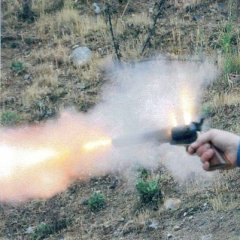
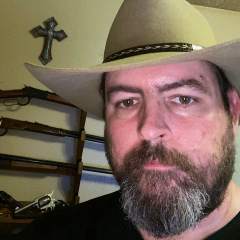
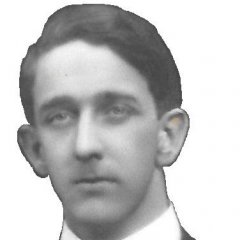
.thumb.jpg.42f9340f5815e3915f9a0b0991f5aa8f.jpg)
